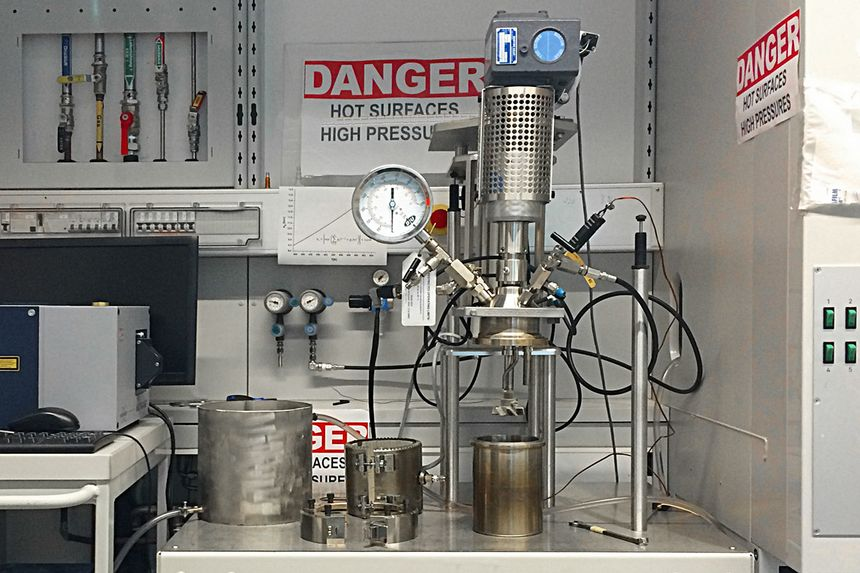Apr 22 2020
Several materials used in day-to-day life are not lasting. A few of them are hazardous to plants or animals, and the remaining ones consist of rare elements that will not always be as readily available as they are at present.
 1L steel reactor in the laboratory of Miriam Unterlass. Image Credit: © Miriam Unterlass/TU Wien.
1L steel reactor in the laboratory of Miriam Unterlass. Image Credit: © Miriam Unterlass/TU Wien.
A huge prospect is to realize different material properties by making use of new organic molecules.
Although organic high-performance materials with only usual elements like oxygen, hydrogen, or carbon could resolve the resource crunch, their preparation is often not eco-friendly. Highly toxic substances are generally used during the synthesis of these materials, despite that the end product is non-toxic.
Researchers at TU Wien have taken a path less traveled: the research team for organic high-performance materials, under the guidance of Prof. Miriam Unterlass at the Faculty of Technical Chemistry of TU Wien, has used an entirely different synthetic technique.
Only hot water is utilized rather than toxic additives. A crucial breakthrough has been currently achieved: two essential classes of polymers could be produced using the novel process—a critical step toward the industrial application of the novel technique. The findings of the study have been reported in the leading journal Angewandte Chemie.
High Pressure and High Temperature
We are investigating so-called hydrothermal synthetic processes. We are working at high pressure and high temperature in the order of 17 bar and 200 °C. As it turns out, under such extreme conditions it is possible to avoid using toxic solvents that would otherwise be necessary for producing these polymers.”
Miriam Unterlass, Professor, Institute of Applied Synthetic Chemistry, TU Wien
Unterlass continued, “The term ‘green chemistry’ refers to those methods that allow to render not only the end products but also the synthetic processes in the chemical industry more environmentally friendly.”
Previously, Miriam Unterlass has achieved the first positive outcomes using this technology many years ago.
We succeeded, for example, in producing organic dyes, or polyimides—plastics that are indispensable in the aviation and electronics industries. This also generated a great deal of interest from the industry.”
Miriam Unterlass, Professor, Institute of Applied Synthetic Chemistry, TU Wien
Unterlass added, “But now we have taken an important step forward: We were able to synthesize different polymer examples from two highly interesting classes of plastics—polybenzimidazoles and pyrron polymers.”
New Preparation Processes for Super-Plastics
At present, polybenzimidazoles are employed as membranes in fuel cells as they are acid-resistant even at high temperatures and capable of conducting protons. Moreover, polybenzimidazole fibers are used in fireproof clothing like the protective suits of firefighters.
Unterlass stated, “That already shows that they are real super-plastics.”
By contrast, the pyrron polymers exhibit specific appealing electronic properties apart from their outstanding stability. Therefore, they are ideal for applications like strong and highly resistant electrode material in batteries or field-effect transistors.
The fact that these polymers can be prepared using our hydrothermal process is remarkable since under usual conditions the chemical reactions for generating these plastics are sensitive to water. This shows how promising our method is for a wide range of applications.”
Miriam Unterlass, Professor, Institute of Applied Synthetic Chemistry, TU Wien
The latest fabrication technique for the two new classes of materials has already been patented, with the support of the research and transfer assistance of the TU Wien. The products’ electrochemical analysis was performed in collaboration with Imperial College London.